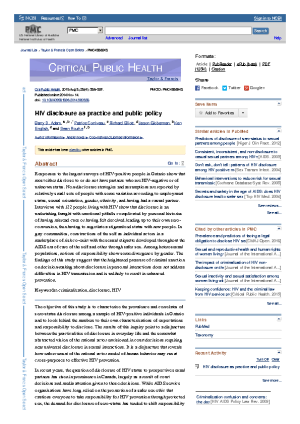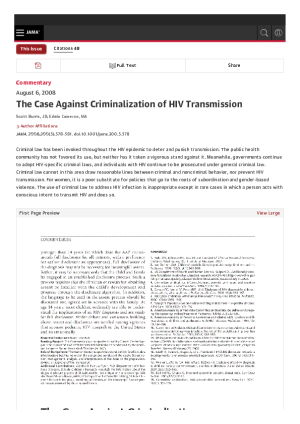HIV disclosure as practice and public policy
Found that the increasing criminalization of HIV non-disclosure does not address the complexity of HIV transmission, making it unlikely to reduce HIV transmission.
The Case Against Criminalization of HIV Transmission
Argues that although criminal law has been invoked throughout the HIV epidemic, the public health community has neither favoured its use nor taken a vigorous stand against it. States criminal law cannot draw reasonable lines between criminal and noncriminal behaviour, or prevent HIV transmission. For women, it is a poor substitute for policies that go to the roots of subordination and gender-based violence.

